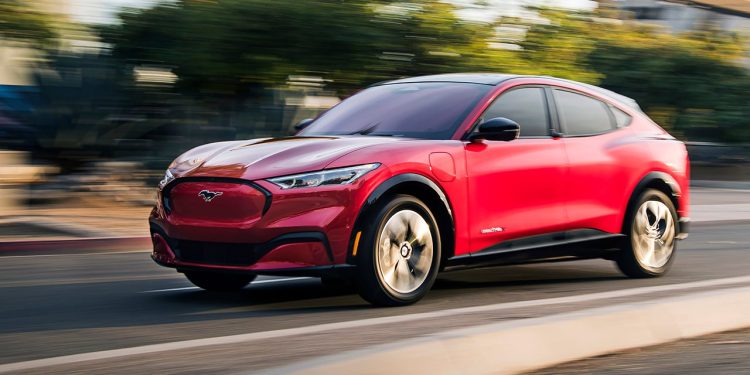Watch: Which new electric SUV fails the moose test?
Words: Matthew Hansen
Through the decades the ‘moose test’, a test of a car’s ability to take sudden steering inputs without showing excessive body roll or understeer, has been a quintessential test of a car’s avoidance abilities.
There are always curious vehicles that fail the test. Toyota’s Hilux and RAV4 and the Suzuki Jimny are among the best-selling models with moose test failures in recent years. But it’s worth acknowledging that even performance cars like the Mercedes-AMG A 45 have been undone.
The latest curious entry to fail the moose test is Ford’s fully electric Mustang Mach-E.
German media outlet and independent testing firm Teknikens Värld recently put the pony SUV through its paces, alongside three other electric SUVs; the Hyundai Ioniq 5, Skoda Enyaq iV, and Tesla Model Y. You can view their testing in full below:
While the Ioniq 5 and Enyaq passed the test at 72km/h, and the Model Y topped the test by passing at a commendable 75km/h, the Mach-E failed at all of the group’s standard testing speeds.
This is despite most overseas reviews praising the Mach-E’s driving dynamics. Indeed, great handling isn’t necessarily a guarantee that a car will perform well when put under these kinds of loads.
So where does it all go wrong? Well, Teknikens Värld blames the failure on the Mustang’s electronic stability control. It says that the system is too slow to react, particularly to the Mach-E’s swinging rear end.
Not that this means much for New Zealand readers, of course. While the Ioniq 5 and Enyaq have already been confirmed for our market, and the Model Y is likely a shoe-in, too, the Mach-E remains off the table for Kiwi customers. At least for now.





